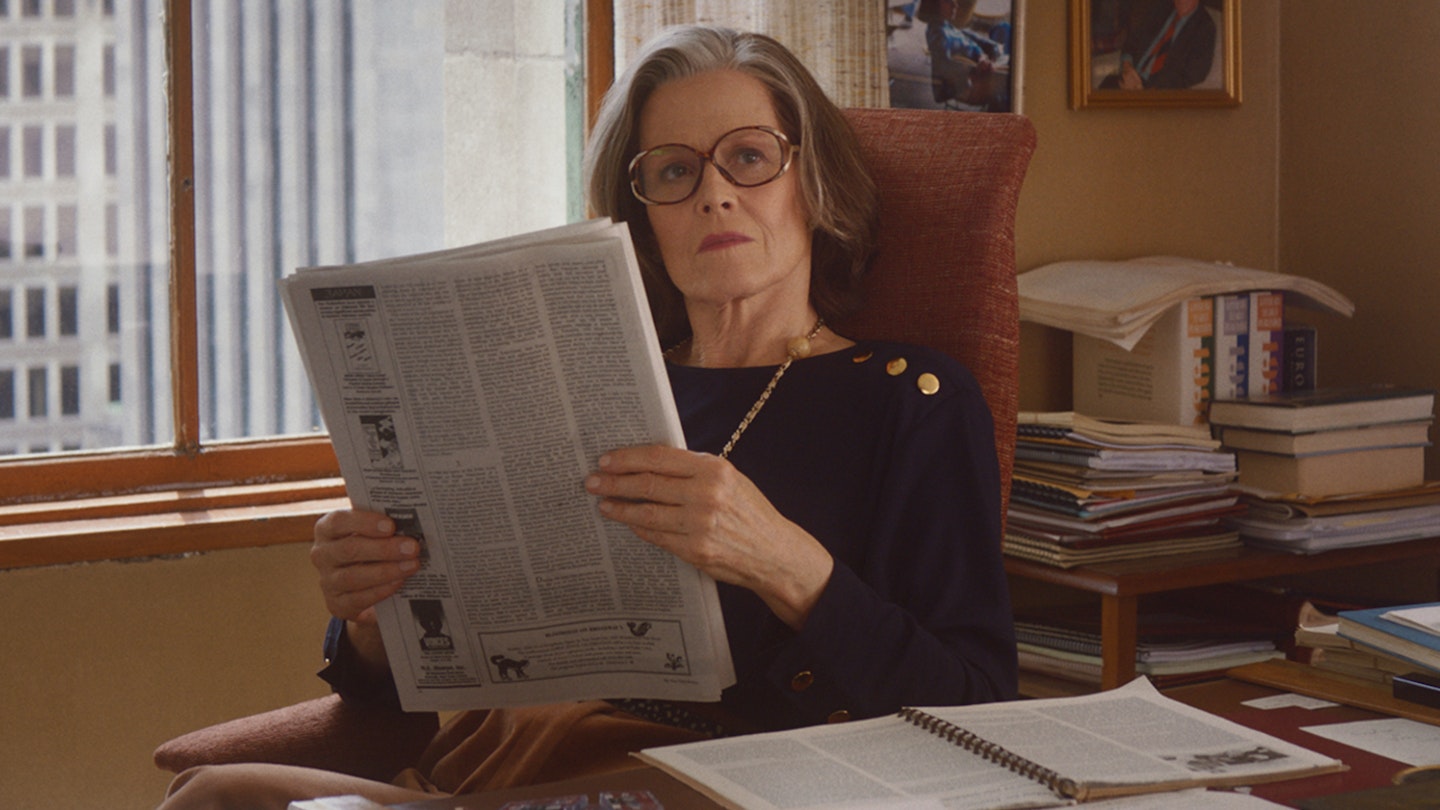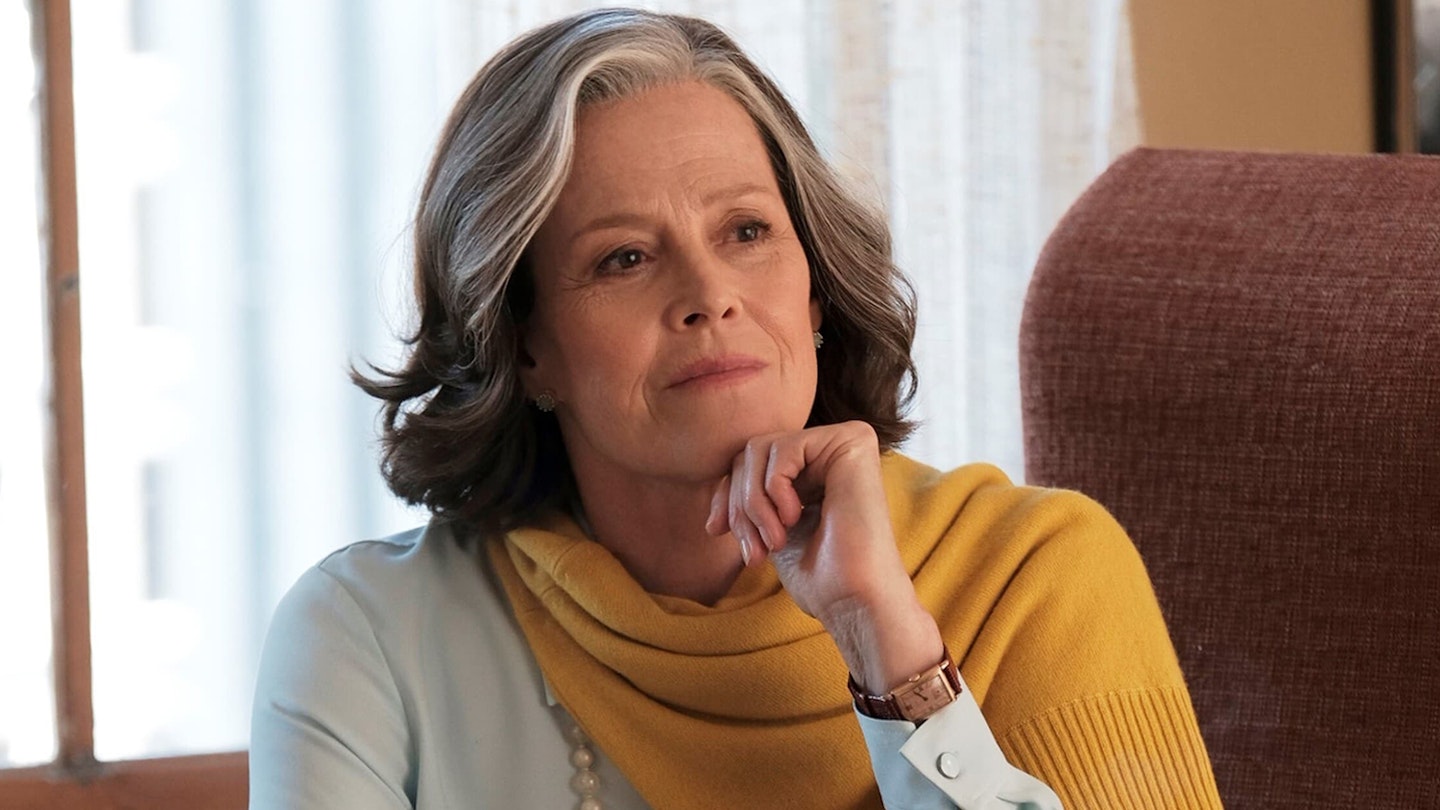“New York!” swoons Margaret Qualley’s Joanna during My New York Year’s prologue. “Isn’t that what aspiring writers did? Live in cheap apartments and write in cafés?” Then she offers a little apologetic sigh. “I know.” Joanna, inevitably, goes on to live in a cheap apartment (one without a sink) and write in cafés; writer- director Philippe Falardeau’s script, adapting the memoir My Salinger Year by Joanna Rakoff, acknowledges the romanticised cliché of East Coast bohemia without ever escaping it, a continuation of a stereotype rather than a fresh take.
This is a coming-of-age tale — aspiring young creative type tries to make it in the big city — that has long come of age. Qualley’s starry-eyed naivety channels early Greta Gerwig, while Weaver is basically a less cartoonish Meryl Streep from The Devil Wears Prada; take Streep’s fashion tyrant, move her a few blocks north to Manhattan’s Upper East Side, replace the Prada with a pastel-coloured, shoulder-draped sweater, and you have Margaret.
Her kindness in these scenes is what gives the film its heart, and Qualley’s gently sweet performance is enough to hold sway.
Unlike Joanna’s dreamy literary aspirations (“I didn’t want to be ordinary,” she coos at one point, “I wanted to be extraordinary”), this is nothing new, then. But though it occasionally suffers from a lack of drama — Joanna climbs New York’s literary ladder with such ease that actual struggling writers will scoff at her, jealously — it’s not unwatchable, lifted by a sense of earnestness and empathy that both the main character and writer-director seem to share, and by the compelling mystery of Salinger.
No great revelations are offered on the reclusive author, referred to in his agency as ‘Jerry’, but Falardeau wisely keeps him on the margins of the film, his voice only heard over the phone, his well-dressed figure glimpsed only in the distance, his mystique sustained and cultivated. While the pair share a few inspiring conversations, Joanna is more fascinated by the author’s fans than Salinger himself, combing through the reams of letters she must respond to with cold boilerplates (and violating all manner of personal data rules in the process).
Her kindness in these scenes is what gives the film its heart, and Qualley’s gently sweet performance is enough to hold sway. (The less said about a climactic fantasy dance sequence, the better, though.) Weaver is wonderful too — of course she is — infusing a fairly thin ‘frosty boss’ archetype with a shrewd eye and an occasional well-placed smile. No such luck for Douglas Booth, who, as Joanna’s boyfriend, plays a walking red flag, offering gems like, “Good literature is a powerful aphrodisiac!” while writing cringeworthy sex scenes into his dreadful fiction. For a lot of viewers, his awfulness will be obvious, but to the younger target audience, perhaps not.
This is clearly a film made for teenagers about to embark on their own creative journey, and as a portrait of a young woman asserting herself and her place in the world, professionally and personally, it’s perfectly fine — that is, undeniably, what wannabe writers do.

